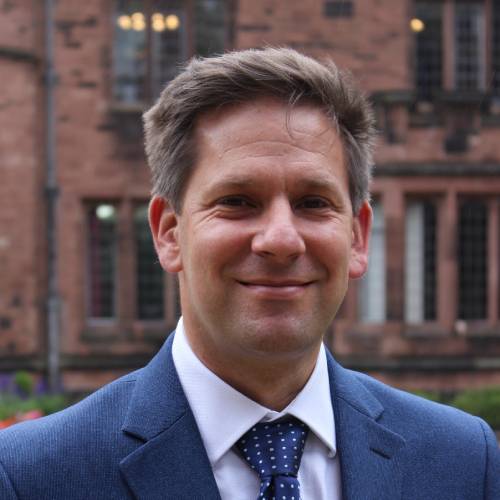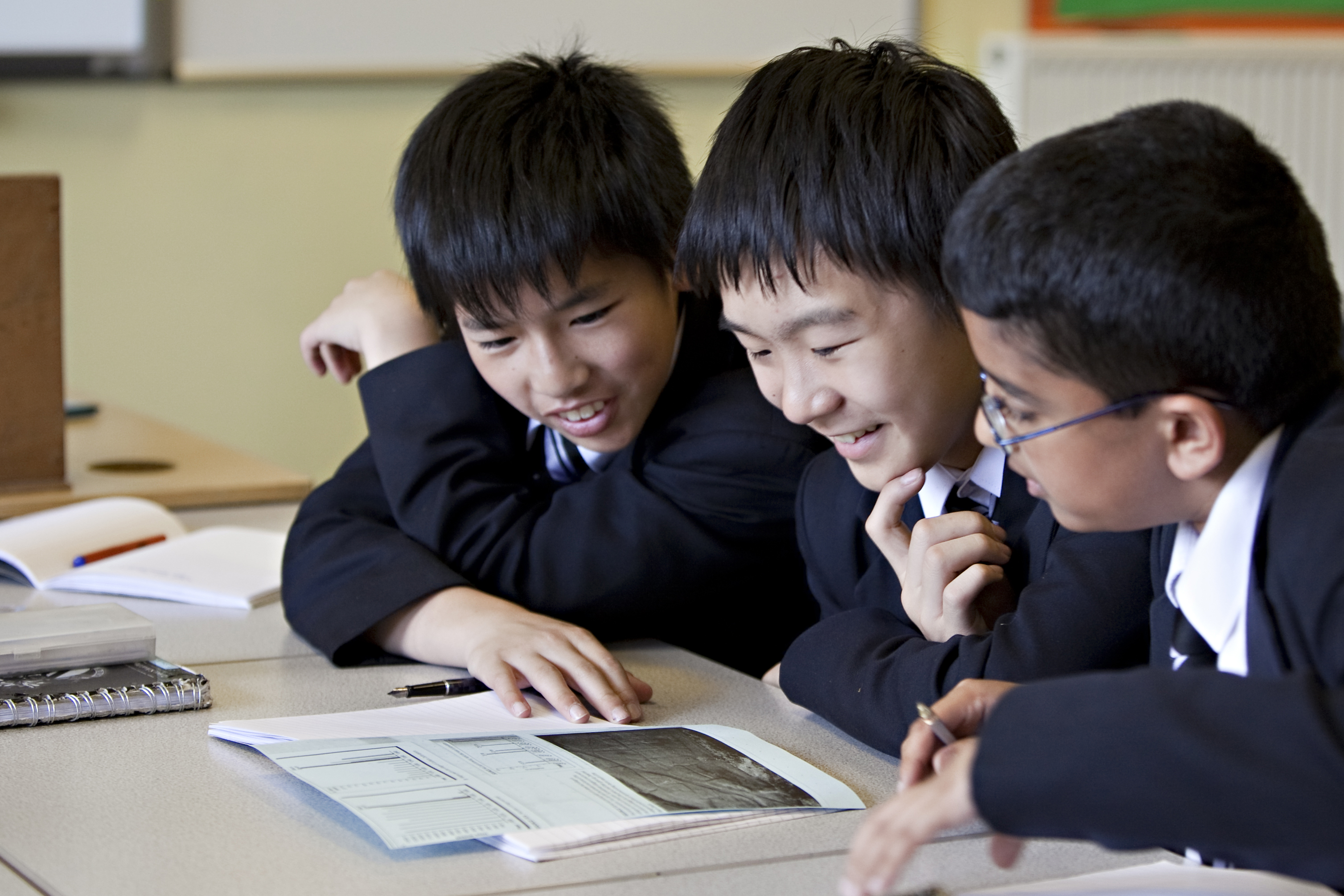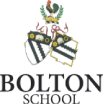We have high aspirations for all our boys and provide an enriching environment in which they can achieve them. An education at Bolton School will enable your son to identify and cultivate his own special interests and talents, develop a sense of intellectual curiosity and achieve excellent academic results.
Ours is a vibrant, diverse community where your son will be happy and make life-long friends. He will become a confident, eloquent and considerate young man, who will learn the vital leadership skills to make his way in the world and make a difference for good.
Our website pages can only offer a glimpse of what we can offer your son. We would be delighted to provide you with a tour of the school, so that you are able to see at first-hand what a truly exceptional education Bolton School provides.

Mr Nic Ford
Head of Boys’ Division
The Boys' Division is an HMC school.
The Senior School
Find out how boys learn in our Senior School and discover what an average day looks like:
While our timetable is organised in the spirit of the National Curriculum, it is not limited by it. This means that boys have the time and space within the school day to combine traditional academic rigour with opportunities for self-expression and creativity.
The aims are for all boys are to develop:
- fluency in, and accurate use and understanding of, English
- skill in numeracy; in problem-solving; and proficiency in mathematical and scientific methods and investigations
- proficiency in at least one foreign language, with the opportunity to attain knowledge and understanding of at least one other language, modern or classical
- an appreciation and development of ability in the creative arts
- proficiency in the use of ICT
- proficiency in the knowledge of concepts, issues and applications in history, geography and technology; a knowledge and appreciation of humankind, our heritage, human achievements and aspirations; and a concern for environmental and ecological issues
- the coordination of body and mind
- a training in personal, inter-personal and social responsibility; the understanding and development of a respect for religious and moral values, for other people and, above all, for oneself
- the development of independent thought and study, and the active encouragement of a sense of curiosity and a spirit of enquiry and adventure.
Boys’ development is enhanced through the provision of a wide variety of contexts, both within the School and beyond, that encourage the fulfilment of these aims.
All three year groups have a three day residential, outdoor education visit to Patterdale Hall in the Lake District each year to pursue the practical elements of our outdoor education curriculum.
Year 7
In Year 7, pupils are placed in un-streamed Form tutor groups. Their curriculum comprises:
| Subject | Periods per two week cycle |
|---|---|
| English inc Literacy | 8 |
| Maths | 8 |
| French | 6 |
| Science | 5 |
| Latin | 4 |
| Geography | 4 |
| History | 4 |
| Sport | 4 |
| Technology | 3 |
| Music | 3 |
| Art | 2 |
| Religious Studies | 2 |
| Coding | 2 |
| Swimming | 2 |
| SPACE | 2 |
| PE | 1 |
Year 8
From Year 8 until GCSE, Mathematics and English are in sets across the whole year group. In June all boys undertake a day of work sampling organised by the Careers Department.
| Subjects | Periods per two week cycle |
|---|---|
| English inc Literacy | 8 |
| Maths | 6 |
| French or Spanish | 6 |
| German or Russian | 6 - some boys replace their second MFL with extra Literacy |
| Sport | 4 |
| Biology | 3 |
| Chemistry | 3 |
| Physics | 3 |
| Geography | 3 |
| History | 3 |
| Latin | 3 |
| Music | 2 |
| Art | 2 |
| Technology | 2 |
| Religious Studies | 2 |
| SPACE | 2 |
| PE | 1 |
| Swimming | 1 |
Year 9
| Subjects | Periods per two week cycle |
|---|---|
| English | 6 |
| Maths | 6 |
| French or Spanish | 5 |
| German or Russian | 5 - some boys replace their second MFL with extra Literacy |
| Biology | 4 |
| Chemistry | 4 |
| Physics | 4 |
| Geography | 4 |
| History | 4 |
| Sport | 4 |
| Latin or Classical Civilisation | 3 |
| Art | 2 |
| Technology | 2 |
| Music | 2 |
| SPACE | 2 |
| Religious Studies | 2 |
| PE | 1 |
In Years 10 and 11, all boys study the core curriculum:
| English Language | Biology | PE |
| English Literature | Chemistry | SPACE |
| Mathematics | Physics | Sport |
Biology, Chemistry and Physics are taken as separate subjects, with each having 5 teaching periods per cycle. This will lead to a minimum of two GCSE awards, with the majority of the boys going on to study the sciences to a greater depth for three separate GCSE certificates.
PE and Sport are compulsory, non-examined subjects taken by all boys. Sport occurs for one afternoon per two-week cycle, with PE taking place for one period per two-week cycle. SPACE sessions take place over ten sessions spread across ten days over a two-year cycle.
Boys choose a further 4 subjects from the pool below, to give a total of 10 subjects taken to GCSE. Each subject below has 6 teaching periods per cycle. At least one Foreign Language and one Humanities subject should be chosen.
| Art & Design | Latin |
| Classical Civilisation | Music |
| Electronics | Physical Education |
| French | Product Design |
| Geography | Religious Studies |
| German | Russian |
| Greek | Spanish (can be taken as a solitary language if it has been chosen in Year 8) |
| History |
The foreign language choice must be a currently studied subject. Spanish can only be taken for the first time in Year 10 if another Modern Foreign Language has been chosen.
The curriculum is reviewed regularly and, on occasion, we can offer a more bespoke timetable to boys who qualify for elite athlete status or have other such specialised requirements.
Personal, Social and Health Education (PSHE) lessons are delivered in the Lower and Upper School through the pastoral system, assemblies and Form meetings, in curriculum study and in the wide variety of extra-curricular activities. Careers education forms an important part of the PSHE curriculum.
The work is managed by the Deputy Head with the Heads of Year, the Head of PSHE and the Head of Careers. The Pastoral Group recommends strategic decisions on the aspect of the curriculum and other pastoral issues to our Senior Management Team.
The Ainsworth Academic Society
The Ainsworth Society gives around fifteen strongly academic boys the opportunity to discuss and debate with the Headmaster. The Society meets in separate forums for each year group of the Lower School: Years 7, 8 and 9.

Members of these enriching forums commit to attending meetings once every half term in the Headmaster’s Study and reading a book that has been selected for discussion. Between meetings, participants are also expected to share their views on issues related to that half term’s book. The reading material spans all disciplines and pupils are encouraged to make suggestions for which books to read.
Joining the Ainsworth Society is by invitation only. In Year 7, the group is composed of those who have won academic awards in our entrance exam. For Years 8 and 9, the group is chosen using MidYIS scores and our Gifted and Talented Register.
The society takes its name from the Ainsworths of Smithills, one of Bolton’s oldest families. Robert Ainsworth, who attended Bolton School, was born in 1660 and made a successful career in running schools in London. In 1736, after 22 years work, he published the most significant Latin dictionary of its time: the Ainsworth Latin Dictionary. This remained the standard Latin dictionary into Victorian times and the school still has a copy of this book, with his inscription, in its collection housed in the Chained Library. Robert Ainsworth is without doubt one of the school’s most distinguished early scholars.











